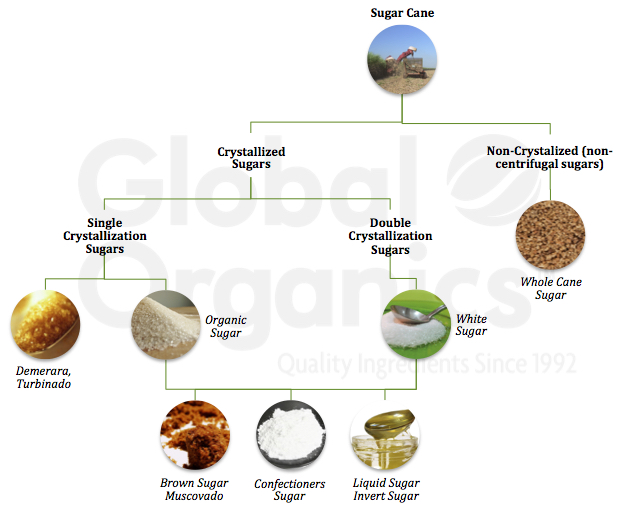Why Sugar and Cane Are Essential Ingredients in Baking and Cooking
Why Sugar and Cane Are Essential Ingredients in Baking and Cooking
Blog Article
Why Cane Sugar Processing Chemicals Are Vital for Modern Sugar Refining
The duty of cane sugar processing chemicals in contemporary sugar refining can not be overemphasized, as they are essential to boosting both the effectiveness of removal and the general top quality of the last product. Representatives such as phosphoric acid and particular flocculants are employed to get rid of contaminations, resulting in sugar that not just fulfills customer expectations but likewise adheres to market criteria.
Duty of Handling Chemicals
The effectiveness of cane sugar processing hinges considerably on the critical application of processing chemicals. These chemicals play a critical function in enhancing the efficiency and top quality of sugar extraction and refining. From the initial phases of juice removal to the last purification steps, handling chemicals assist in numerous crucial procedures.
In the extraction phase, chemicals such as phosphoric acid and calcium hydroxide are utilized to enhance the information procedure, assisting to remove pollutants and suspended solids from the walking stick juice. This not only improves the yield but additionally ensures the clarity of the end product. Additionally, representatives like flocculants help in the quick settling of contaminations, therefore simplifying the overall process.
As the processing advancements, chemicals are utilized in decolorization and crystallization phases. Activated carbon and ion exchange materials offer to remove color and odor, ensuring that the refined sugar fulfills customer top quality standards. Ultimately, the role of processing chemicals expands beyond functional efficiency; they significantly affect the sensory qualities of the end product, contributing to market competition. Hence, the careful option and application of these chemicals are important for achieving optimum results in walking cane sugar handling.
Key Kinds Of Chemicals
Walking cane sugar processing relies upon a variety of key chemicals that assist in each stage of production. These chemicals play important duties in clarifying, whitening, and cleansing the sugar removed from walking stick.
One main group of chemicals includes flocculants, such as polyacrylamide, which help in the information process by advertising the gathering and settling of impurities. Additionally, calcium hydroxide is often used to counteract acidity and aid in the elimination of non-sugar components.
Lightening agents, such as triggered carbon and sulfur dioxide, are utilized to decolorize the syrup, leading to a clearer final product. These chemicals help get rid of color compounds that may impact the sugar's appearance and bankability.
Furthermore, phosphoric acid functions as a pH regulatory authority during the handling phases, ensuring ideal problems for the enzymatic tasks associated with sugar removal and purification.
Other important agents consist of edta (ethylenediaminetetraacetic acid), which chelates steel ions that could catalyze undesirable reactions, and sodium hydroxide, which helps in pH control throughout the refining process. Collectively, these chemicals improve effectiveness and make sure a premium walking stick sugar item.
Advantages for Sugar Quality
Frequently neglected, making use of particular handling chemicals substantially enhances the overall quality of cane sugar. These chemicals play a pivotal function in refining procedures, making sure that the final item satisfies stringent sector criteria for purity and preference.

Additionally, processing chemicals aid in achieving a constant granulation and structure, which are crucial for customer acceptance. By regulating the crystallization process, these chemicals guarantee that the sugar crystals create evenly, causing a more enticing read review item that dissolves well in numerous applications.
In addition, using these chemicals can enhance the life span of cane sugar by reducing moisture absorption and microbial development. Generally, the strategic application of processing chemicals is important for delivering high-quality walking stick sugar that satisfies consumer assumptions and sector needs.
Ecological Impact Factors To Consider

Additionally, the energy-intensive nature of sugar refining, intensified by chemical use, frequently content causes boosted carbon discharges. This adds to environment change and increases problems concerning the sustainability of present refining techniques. Furthermore, the sourcing of these chemicals might include practices that intimidate biodiversity, such as monoculture farming, which decreases the strength of farming communities.

To alleviate these impacts, sugar refiners are progressively exploring lasting alternatives and embracing best techniques that reduce chemical usage. Carrying out strenuous ecological management systems can assist make certain that the refining process aligns with ecological requirements and advertises biodiversity. Inevitably, a well balanced strategy that prioritizes both sugar quality and ecological stewardship is essential for the long-term stability of the sugar sector.
Future Fads in Refining
As the sugar market faces the ecological difficulties connected with conventional refining approaches, ingenious strategies are arising to enhance both effectiveness and sustainability. One considerable pattern is the fostering of eco-friendly chemistry principles, which focus on using non-toxic, naturally degradable processing chemicals. This shift not just minimizes ecological influence but likewise addresses customer need for cleaner manufacturing approaches.
Another find here encouraging development is the application of advanced filtration technologies, such as membrane splitting up and adsorption processes. These methods boost the clearness and top quality of the sugar while minimizing the quantity of wastewater generated during refining. In addition, the integration of electronic technologies, consisting of IoT and AI, is transforming operational performance by making it possible for real-time monitoring and anticipating maintenance, hence minimizing source waste.
Moreover, using spin-offs from sugar refining, such as bagasse and molasses, is obtaining traction. These materials can be transformed right into biofuels or value-added products, adding to a round economic climate within the industry. Collectively, these trends signify a change in the direction of more sustainable practices that not just improve functional performance yet additionally align with global sustainability objectives, guaranteeing the future practicality of sugar refining.
Conclusion
Cane sugar processing chemicals are crucial in modern sugar refining, significantly enhancing the performance and quality of sugar extraction. The tactical use these chemicals not only boosts the purity and flavor of the end product but also makes sure constant formation and appearance. As the market significantly focuses on sustainability, the fostering of environmentally-friendly processing agents is most likely to shape future trends in refining, eventually leading to better items and extended life span for customers.

Ultimately, a well balanced method that focuses on both sugar top quality and environmental stewardship is necessary for the long-lasting viability of the sugar industry.
Walking stick sugar processing chemicals are essential in modern sugar refining, substantially enhancing the effectiveness and top quality of sugar extraction.
Report this page